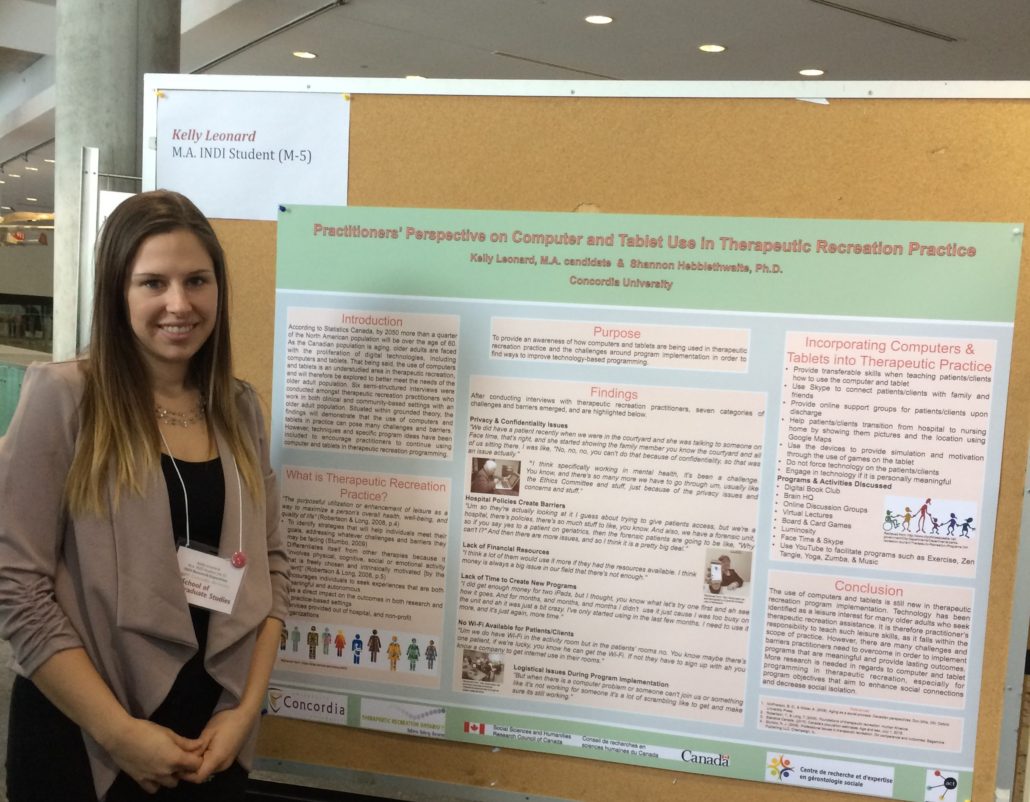ACT researchers will present as part of a panel titled Ageing, Communication, Technologies: Experiencing a digital world in later life at the upcoming conference of the Canadian Association of Gerontology (CAG) to be held in Montreal from October 20 to 22. The ACT panel will take place on October 22 at 3:15pm.
The panel employs and explores a variety of methodologies to broach the study of old age, media and technologies in manners that reveal the heterogeneity of life courses and the multiple ways one can age with and through technologies. In “Media portrayal of grandparents,”, Shannon Hebblethwaite, Linda Quirke and Kelly Leonard critically examine how old age, grandparents, and their engagements with technologies can be normatively represented in some media discourses. Then, we move to challenging these representations, drawing from interviews, and participatory and creative approaches to probe engagements between seniors and media. In “Living with media,” Kim Sawchuk explores the variegated digital practices of elders gleaned from interviews with octogenerians. Through the seniors’ “technobiographies,” Sawchuk challenges the simplistic binary of use and non-use. In a similar way, Kate de Medeiros draws from an autobiographical writing workshop for older adults to examine the importance of the processes of telling and listening as part of “Applied narrative gerontology”. Finally, Giuliana Cucinelli, Ann-Louise Davidson and Margarida Romero further delve into the potentialities of collaborative learning and play. In their presentation of “Participatory game design in intergenerational contexts,” they explain how the creative and intergenerational design of a game can work to challenge perceptions of seniors on technologies. Along with the panel, the ACT will co-host a kiosk with the research group VIES from October 20 to 22nd.
—
Ageing, Communication, Technologies: Experiencing a digital world in later life
Shannon Hebblethwaite, Concordia University; Linda Quirke, Wilfrid Laurier University and Kelly Leonard, Concordia University
“Media portrayal of grandparents: ‘Wise, white haired miracle makers’ or ‘Critics’?”
Kim Sawchuk, Concordia University
Living with media: octogenarians, technobiographies and communicating digital “use and non-use”
Giuliana Cucinelli, Concordia University; Ann-Louise Davidson, Concordia University & Margarida Romero, Université Laval
Participatory game design in intergenerational contexts: Co-designing digital games for intergenerational learning using Scratch
Kate de Medeiros, Miami University, USA
Applied narrative gerontology: A case study on listening and the power of being heard






